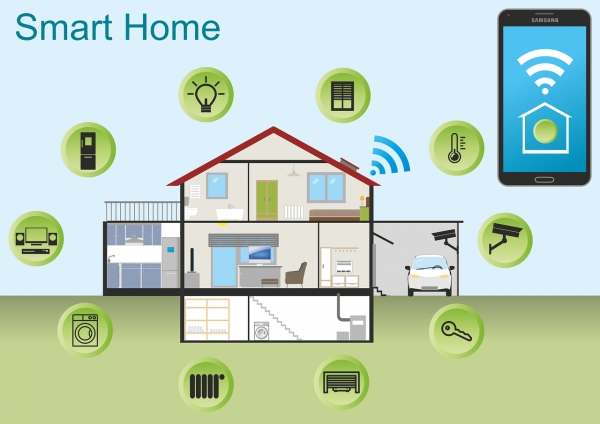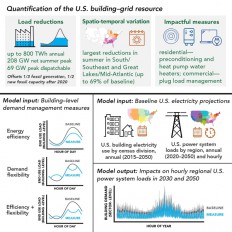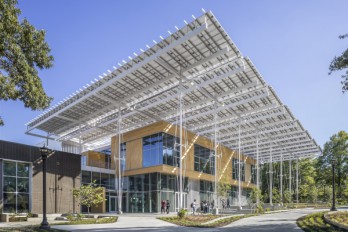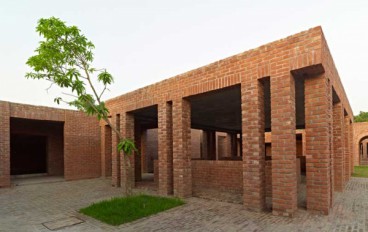Smart buildings potential and limitations

Smart buildings have the capability of completely changing the future of building infrastructure. However, certain limitations cannot be neglected.
Smart technology in building infrastructure is quite new in comparison to other industries (e.g. electrical appliances). The applications of such technology in buildings would result in increasing the comfort of occupants and improve energy efficiency.
The most common smart system is known as OCC (occupant-centric control). This system accumulates data from occupant habits and properly adjusts buildings' features such as heating, air conditioning, lighting etc.
Nevertheless, according to Mohamed Ouf, an Assistant Professor in the Department of Building, Civil and Environmental Engineering at Concordia University, Montreal, OCC technology is not easily applicable. In a new study, Prof. Ouf and colleagues, focus on OCC implementation projects and evaluate the system's performance.
The research team found out that OCC has not been widely applied in actual cases mostly due to its cost inefficiency. “We scanned the literature for relevant work that has been done on this topic and analyzed its different attributes in detail. We realized that very few researchers have been able to actually implement these control approaches in real buildings for many logistical reasons,” Prof. Ouf stated.
The study focused on 120 publications relative to the OCC to find out that only 42 of them were associated with actual field applications and the other consisted of theoretical approaches. Authors emphasize that OCC is still a very new system and more research should be implemented.
A concern that Prof. Ouf raises is the fact that OCC is a term not actually determined by the community. Some questions are left unanswered. For example, it is still indefinite whether OCC should prioritize comfort of energy efficiency or how much control a single person should have in a smart building.
Another issue that emerges is that the system must be highly developed to address privacy issues as people's data should be protected. This requires state-of-the-art software capabilities.
Despite the fact that the study emphasizes the current limitations of smart buildings, Prof. Ouf ensures that OCC is a new system and, therefore, there is plenty of room to improve in the future. “This whole niche of occupant-centric controls is still very new and provides exciting opportunities to combine advancements in data science and artificial intelligence with building engineering,” he stated.
Moreover, Prof. Ouf added that the system will be testing in a real building that will be established in the laboratory of the University. The facility will include 4 offices equipped with specialized sensors that will record the people's behavior and interaction with the building's environment.
Source: Concordia University
Source: Concordia University
Want to read more like this story?

The Internet of Things in building industry
Aug, 01, 2021 | NewsThe Internet of Things (IoT) is currently developed and can be applied to the building industry gene...

Control building energy demand to preserve the electrical power resources
Jul, 07, 2021 | NewsA new study conducted in the United States quantifies how the optimization of the consumed energy in...
The prospects for carbon-neutral buildings
Oct, 27, 2023 | NewsIn the United Kingdom, buildings account for 33% of greenhouse gas emissions and 40% of global ener...

The "living building" in Georgia Tech University
Apr, 22, 2021 | NewsGeorgia Tech announced on Earth Day 2021 that one large project, the Kendeda building has been...

The most innovative and sustainable office building in the world
Apr, 15, 2016 | NewsIt is called ‘The Edge’ and is located in the business district of Amsterdam, in the Net...

UK’s first energy-positive office opens in Swansea
Jul, 16, 2018 | NewsThe UK's first energy-positive classroom generates more than one and a half times the solar energy i...

EU Parliament is updating the EU's rules to further improve the energy efficiency of buildings
Apr, 12, 2018 | NewsFrom January 1st, 2021, all new buildings in the EU should use little or no energy for heating, cool...

Next generation of smart homes
Dec, 13, 2018 | NewsThe new era of smart houses is whar researchers call the "Internet of Ears''. The present technol...

3-story building collapses in Brooklyn, New York
Jul, 07, 2020 | NewsA 3-story building that used to house a gym facility suddenly gave way in Brooklyn. The incident...
Trending

Vertical gardens in Mexico City to combat pollution

Saudi Park Closed After 360 Big Pendulum Ride Crashes to Ground, 23 injured

Characteristics of Load Bearing Masonry Construction

Taipei 101’s impressive tuned mass damper

Dutch greenhouses have revolutionized modern farming

Federal court rules Biden’s offshore drilling ban unlawful


